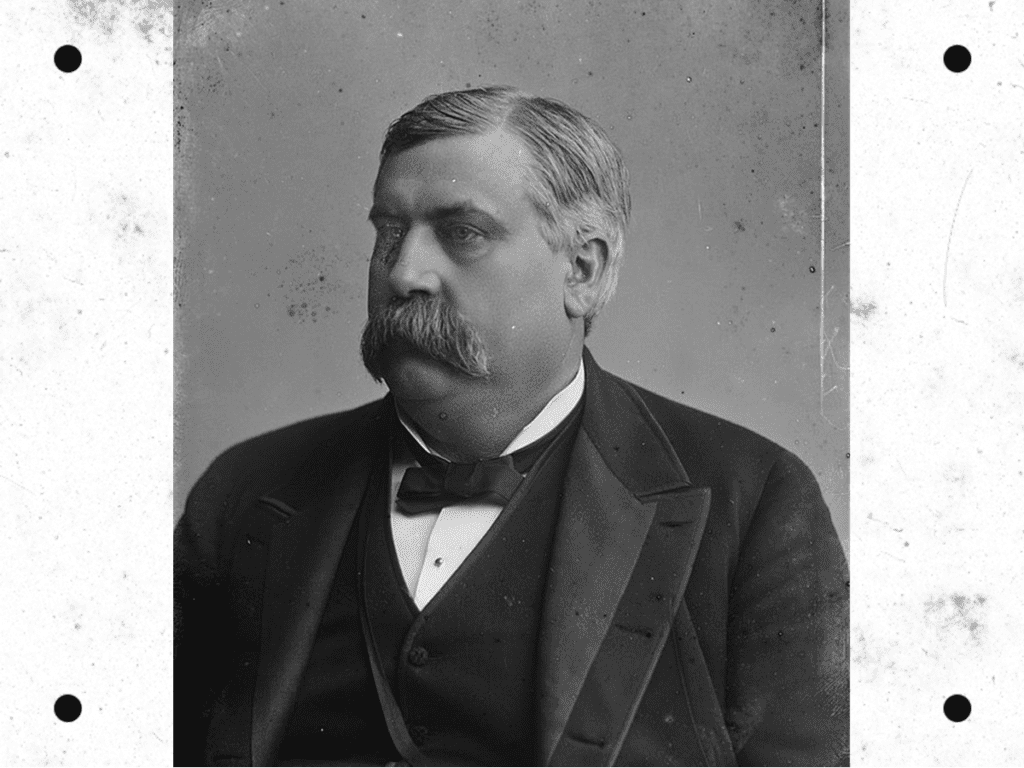Benjamin Lefevre, was born near Maplewood in Shelby County on October 8, 1838. He first learned to read by the light of a burning rope knot which he would hang in his room. Upon completion of his schooling, both in the township log cabin and later in Sidney, He attended Miami University in 1858 and 1859. Thereafter he studied law in Sidney.
Lefevre volunteered to serve under General Fremont with the Benton Cadets in Missouri. After that group was disbanded, he signed on as a regimental officer in the 99th Ohio Volunteer Infantry in July1862. Lefevre received a battlefield promotion to major at the battle of Stones River. Major Lefevre also led his troops at the battle of Chicamauga, one of the most terrible of the war. He served until the close of the war. He mustered out as major of the Fiftieth Ohio Infantry and was brevetted brigadier general.
LeFevre served as a member of the Ohio State House of Representatives beginning in 1865. While serving in the 65th and 66th General Assemblies, he was the youngest member of those bodies. He was nominated in 1866 for Ohio Secretary of State by the Democrats but was defeated. General Lefevre served as United States consul at Nuremberg, Bavaria from 1867-1869. Upon his return to America, he worked for the Pennsylvania Railroad in Lima, Ohio. During that time, he organized the First National Bank of Lima, serving as its vice-president.
He ran for nomination by the Democratic party for Representative to the 46th U.S. Congress. In those days, a nominating convention was held in each district. In the longest convention in the history of the state, Lefevre was nominated by a majority of one and a half votes on the 218th ballot. The political wrangling lasted for three days and nights. He was thereafter elected as a Democrat to the Forty-sixth United States Congress and the three succeeding Congresses, serving from 1879 to 1887.
In his eight years in Congress, Lefevre served with distinction. He introduced the resolution that established the U.S. Department of Agriculture, and served four years as chairman of the Agriculture Committee of the House. He sponsored numerous bills protecting the rights of the veterans of the Civil War. Lefevre was at the height of his popularity when his fourth term ended. A periodical of the time described the manner in which he handled his constituents as follows: “That family in the district is not to be found to whom he has not sent out from Washington an occasional report, pamphlet, printed speech, package of garden seeds or box of bulbs. He has received more press notices touching his personal appearance and gallantry than any other member of Congress.”
In 1884, at the age of only 46, Gen. Lefevre commenced another career with the Erie Railroad as claims manager. He retired in 1907 after working 23 years. During his retirement years, Ben Lefevre accomplished much as a world traveler. He made over 20 separate trips to Europe. On one occasion, he completed a year-long trip around the world by himself. He later reported to his friends that he had crossed the Arabian Desert by camel, toured the Taj Mahal and traveled the Ganges River in India. Upon his arrival in Sidney, he claimed never to have been sick one day and attributed his good health to drinking Vichy water, which he carried with him at all times. As Lefevre looked back on a career as a war hero, politician, railroad man and world traveler, he had reason to be well satisfied. The citizens of Shelby County certainly were. To this day, Ben Lefevre is remembered as one of our most beloved public servants.
